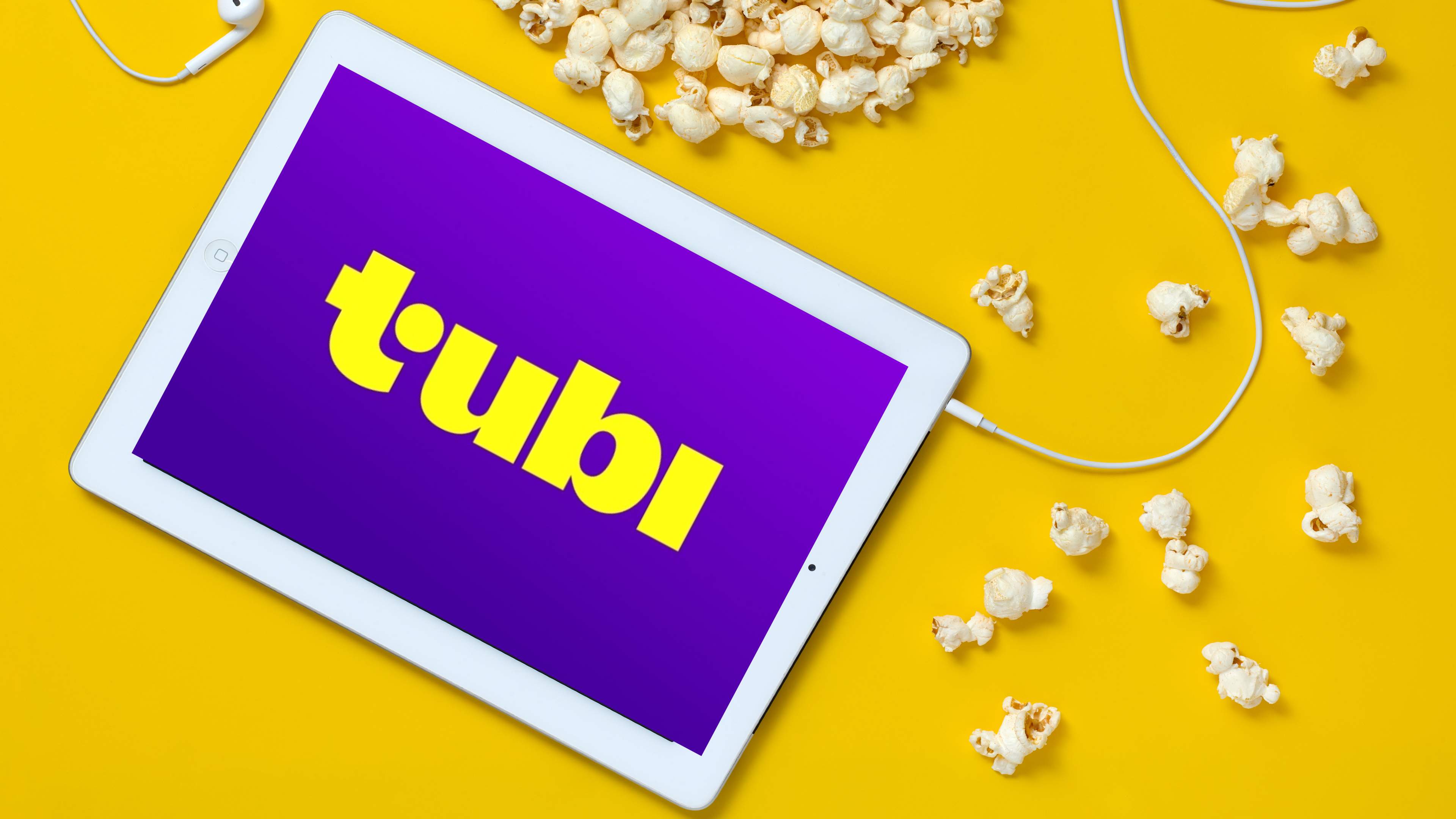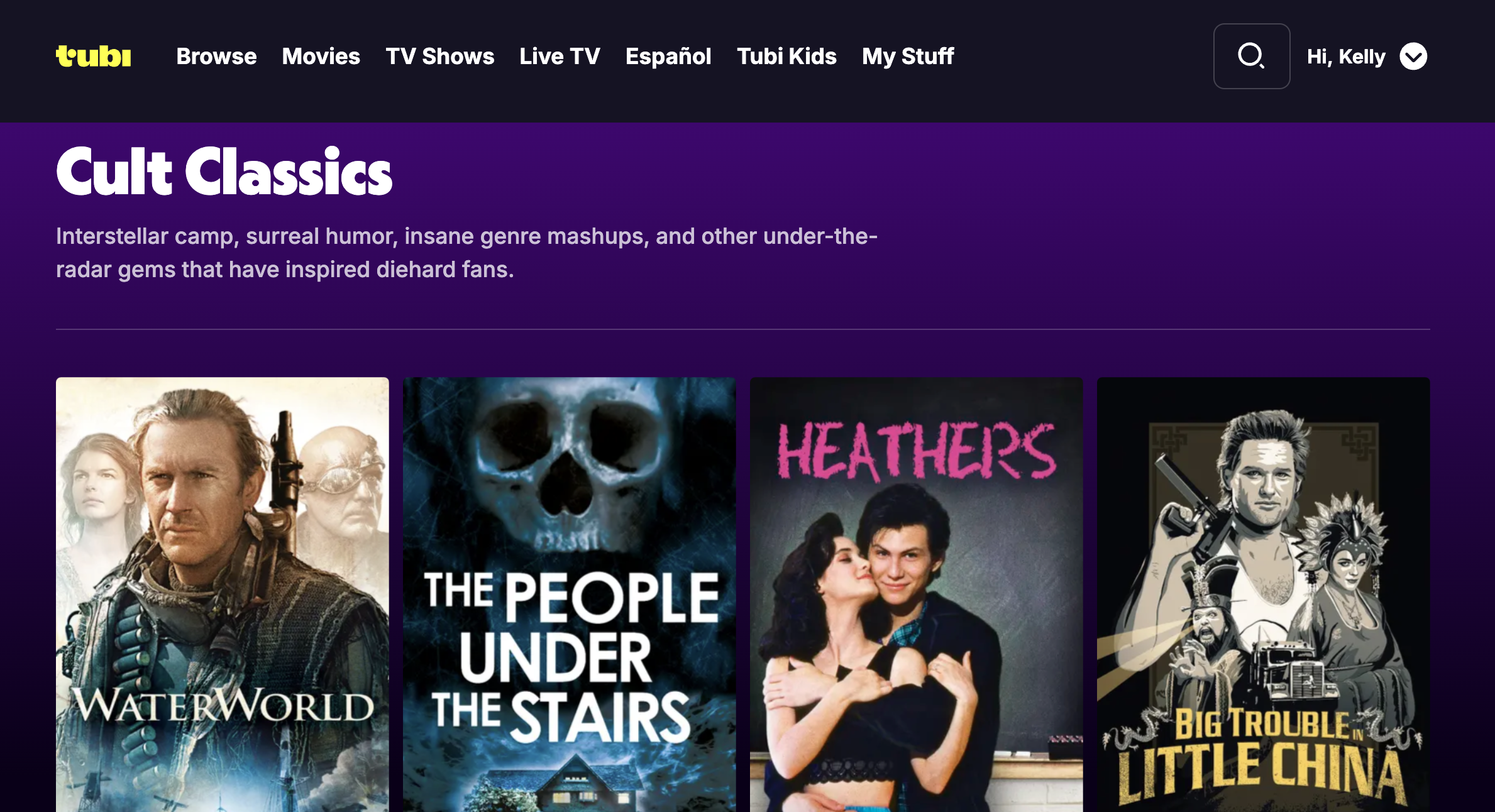Why Tubi is quietly becoming the most exciting streaming service for film lovers
Tubi has hundreds of movies that you can't find elsewhere — and all for free

Once upon a time, Netflix used to send out DVDs of almost any movie you could think of directly to your house. Their catalog was like the Library of Alexandria for movie nerds, allowing everyday folks the opportunity to attend their very own private film school.
But then the brand-new world of streaming opened up, and everything changed. Nowadays, most streaming services have invested a huge amount of capital into original programming. The practical result of this is that their catalogs have taken a big hit, to the point where — especially for pre-1980s films — selection can be quite sparse indeed.
All of the streaming services combined can cobble together a respectable inventory, but increasingly, the humble Tubi seems to stand out for the depth and quality of its film selection. It may not have the name recognition of Netflix, but Tubi is rapidly becoming one of the most valuable streaming services in any film lover’s arsenal.
Licensed films are disappearing from streaming services
As streamers increase their prices, they face constant pressure from shareholders to not only maintain but grow their subscriber base. For many streamers, the decision was made to pivot to original content as a way to attract viewers to films and television shows that could only be found on their platform.
There’s a certain logic to this. After all, if you want to watch "Bridgerton," you need to have Netflix. But it’s also an incredibly expensive business model. Netflix, Prime Video and Apple TV Plus spend ever more money on original content, on both projects created in-house and films made independently whose distribution rights are purchased for eye-watering amounts of money.
As streamers invest in originals, they end up shrinking their licensed cinematic catalogs significantly, abandoning the entire history of film in favor of whatever new project they happen to be excited about at the moment. As a result, they’re packed full of original films and series that vary dramatically in quality, from the most cheaply made, disposable reality shows (ahem, "Selling Sunset") to the occasional prestige drama designed to be trotted around during awards season ("Maestro").
Tubi is picking up the leftovers

While Tubi has only tentatively dipped its toe into creating original content, it’s quickly becoming a go-to destination for audiences interested in films made before 2000. More and more often, when we’re looking to catch up on an off-the-beaten-path movie from the ‘90s, ‘80s, or, heaven forfend, even earlier, they’re showing up on Tubi rather than its subscription-based counterparts.
A quick glance at their current lineup shows Hitchcock dramas, silent films, foreign classics, indie dramas and pretty much anything else you could ask for. What’s more, their interface seems to have arranged the catalog using something resembling Earth logic, which is more than many other streaming services can say.
You can sort by genre, of course, but Tubi also has strong sections of curated content. When you look in “Cult Classics,” for example, you’ll find films as varied as "Tank Girl," "Basket Case," "Freaks," "Waterworld" and "Party Monster." Their “Canceled Too Soon” section has a delightful collection of one-season wonders that most people barely remember, like "Pan Am," "The Tomorrow People" and "Swamp Thing."
The depth of Tubi’s catalog and their willingness to embrace more off-beat selections, rather than focusing exclusively on a small lineup of predictable classics, makes the free streaming service the vehicle of discovery these platforms were always meant to be.
You don't have to pay a single cent
And let's not forget: Tubi is free. The top streaming services are continually raising their prices, trying to find new ways to offer less while charging more. Between introducing ads that you can only avoid by paying an even higher fee and cracking down on password sharing, Netflix and its competitors seem to be approaching a chokehold point where subscribers have to begin to question if it’s actually worth it. Meanwhile, while Tubi has ads built into each of its videos, they’re easy to forgive considering you’re not actually paying a single cent to watch any of their content.
Don’t worry, we still love Netflix, Prime Video, Max, Hulu, etc. They've given us hours and hours of engaging original content, even if they’re peppered with some less-than-brilliant offerings. But while these providers have blazed a path of developing their own shows and films, Tubi has quietly and efficiently snuck in and carved out a space for itself by embracing the business model that originally made Netflix a success back when they were solely operating by mail: creating an extensive catalog of content spanning the history of film and television.
More from Tom's Guide
Sign up to get the BEST of Tom's Guide direct to your inbox.
Get instant access to breaking news, the hottest reviews, great deals and helpful tips.
Audrey Fox is a features editor and film/television critic at Looper, with bylines at RogerEbert.com, The Nerdist, /Film, and IGN, amongst others. She has been blessed by our tomato overlords with their coveted seal of approval. Audrey received her BA in film from Clark University and her MA in International Relations from Harvard University. When she’s not watching movies, she loves historical non-fiction, theater, traveling, and playing the violin (poorly).
